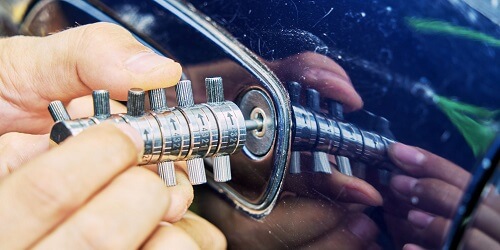Key Troubles? What to Do When Your Car Won’t Start
This is a crisp morning, and you are ready to take the day in your car. You put the key, turn it on … nothing else happens. The engine remains silent, making you feel frustrated and shocked. If you have ever found yourself in this situation, you are not alone. Many drivers experience issues with their keys that can cause confusion and delay.

Understanding why your car is not accepting your key, it is necessary to return to the road quickly. Whether it is a problem with the key or something more complex under the hood, knowing what to see, can save you time – and possibly in the repair of money. Let’s dive deeply in this normal puzzle so that you can deal with the head!
Common Reasons for Key Rejection
A car key cannot work for several reasons. A common issue is a dead battery in the key fob. If your vehicle uses a remote, it can be a criminal.
Another reason can be recorded on dirt or debris inside the ignition. Sometimes, simple as dust can prevent some proper contact.
The teeth worn on traditional keys also play a role. Over time, frequent use can wear those grooves that allow your key to be turned on smoothly.
Additionally, if you have recently changed or repaired your car locks, it is possible that a wrong key program can cause rejection on startups.
Intervention from other electronics nearby can disrupt communication between your key and the vehicle system. Keeping these factors in mind will help to identify why your car is not accepting its key.
Potential Solutions to Troubleshoot the Problem
If your car is not accepting the key, start with a simple test of the battery. A weak or dead battery in your major fob can prevent it from communicating with a vehicle.
Next, check the physical condition of your key. See for any signal of wear and tear. If it appears bent or damaged, consider trying an additional key if you have one.
Also inspect the ignition system. Sometimes dirt and debris are accumulated in the ignition cylinder over time, causing issues. A quick clean miracle can do.
Resetting your car security system can also help. Refer to your owner’s manual for instructions on this process as the procedures vary by model.
Make sure all the doors are properly closed; Sometimes an open door activates security features that start or disable the locking mechanism. Each step brings you closer to solving this disappointing issue!
The Importance of Proper Key Maintenance
Proper key maintenance plays an important role to operate your car smoothly. A clean and well -maintained key not only enhances functionality, but also expands its lifetime.
Dirt and grime can accumulate on the surface of your key, which can lead to issues with ignition or locking mechanisms. Regular cleaning helps prevent these problems. Wiping the key with simply a soft cloth can cause a significant difference.
Additionally, it is necessary to store your key correctly. Keep them away from moisture and excessive temperature. This simple practice prevents rust and damage to electronic components within modern keys.
Consider additional keys made as backup; This ensures that if someone becomes incompatible then you are never trapped. Maintaining both primary and spare adds an additional layer of convenience to your daily routine, reducing the possible headache below the line.
How to Avoid Key Rejection in the Future
To prevent major rejection, regular maintenance is necessary. Keep your keys clean and free from dirt or debris that can interfere with the locking mechanism. A quick wipe with a soft cloth can create a big difference.
Store your keys to a specified place to wear and avoid tears. Avoid throwing them into a bag or pocket where they may scratch or damage.
Consider using protective matters for remote keys. These cases mold against drops and casual effects that can affect functionality.
If possible, there is always an additional key on the hand. This ensures that if someone suddenly fails to work then you are ready.
Pay attention to any signal of trouble. If you difficult to insert the key, get help before becoming a more important issue.
Seeking Professional Help
When the key to your car refuses to cooperate, arriving for professional help may be a game-changer. A skilled locksmith in Tulsa is expected to properly diagnose the issue.
They understand various major types and intricacies of ignition systems. This knowledge is invaluable when simple troubleshooting fails.
Additionally, Tulsa ensure help from Locksmith ensure that you avoid expensive mistakes. Trying DIY solutions may lead to further damage or safety risk.
Professional locksmith also provides insight into major maintenance and care. Their advice can prevent future issues, taking you time and frustration on the road.
If you are facing constant problems with your car key, do not hesitate to call a specialist. This is often the fastest route on the road safely and efficiently.
What are the common reasons a car key might not work?
Car keys can sometimes be of nature. Many factors contribute to the refusal of a key to engage with ignition.
First, dirt or debris in the key or in the lock system can disrupt the appropriate function. Even a small amount of buildups can prevent smooth insertion.
Second, electronic issues often arise in modern vehicles equipped with smart keys. If your car is not recognized by your major fob, it can be due to a dead battery.
Wearing another common issue and tears. Over time, metal keys can bottom or bend, causing problems when trying to turn them into ignition.
Car problems can be incredibly disappointing, especially when it comes to something required as the key to your car. By understanding the common causes behind the major rejection and applying proper maintenance practices, you can significantly reduce the possibility of facing this issue in the future. Whether it is a worn key or electronic malfunction, it is important to be active.
If you are ever in doubt or unable to solve the problem on your own, do not hesitate to seek professional help from a reliable locksmith. A reliable locksmith in Tulsa can quickly diagnose and recover any issue related to your keys or locks. Remember that taking care of your keys and being conscious of their position will lead to a long way toward ensuring smooth access to your vehicle.

It was reported about how the car keys and how to care for them, which makes you properly empowered as a driver keeping in mind the inconveniences in the bay. So the next time you find yourself struggling with a stubborn key, Tulsa Locksmith OK you will know what steps to take to address the situation effectively.
